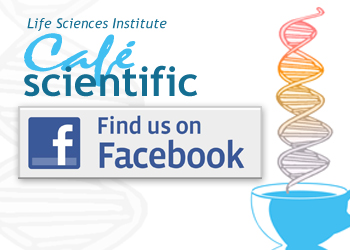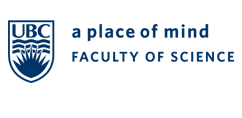 Taken from The Campus Resident – June 2010
Taken from The Campus Resident – June 2010
The passionate dislike of Christopher Ahern for ‘bad cells’ came across clearly during the third session of the UBC Café Scientifique May 25th.
A full house of 50 invited members of the public attending this casual presentation of medical research in the real-life Café Perugia on campus heard Chris, a principal investigator with the Life Sciences Institute, describe how bad cells in a heart can interfere with its production of proper heartbeats.
Chris called the heartbeat “an electrical symphony,” and explained how even a single bad cell can turn this masterpiece of bodily music into arrhythmia, a condition of irregular heartbeats.
The dire prospect of someone developing arrhythmia increases with age, and so the aging population of Canada makes arrhythmia a condition about which the medical profession is growing more and more concerned. Chris said 250,000 Canadians suffer from various forms of arrhythmia. He estimated the number will double over the next fifty years.
The grim news about heart complaints gets grimmer with talk of statistics unfortunately. A third of all deaths in Canada now come from ‘events’ having to do with the heart with $25 billion a year spent on medical responses to these cardiac events. Chris said 400,000 patients in Canada suffer from some kind of heart problem with the number growing by 50,000 patients a year.
At least the bad news on the public health side seems counterbalanced by good news on the research side. A growing assault on cardiac diseases by world class researchers such as the UBC cardiovascular group—under the aegis of the Life Sciences Institute—has cast more and more light on their causes. His research, said Chris, focuses on “the basis for electrical signaling in the body.”
The so-called ‘cardiac cycle’ (a term referring to what happens in the heart from the beginning of one heartbeat to the beginning of the next), is coordinated by a series of electrical impulses that are produced by specialized heart cells, Chris said. A person of average longevity (say, 80 years) will experience 2.5 billion cardiac cycles in his or her lifetime. In studying the cardiac cycle, Chris Ahern and his team focus on “channels” as a way of regulating the movement of ions (electrical particles) into, and out of, the cells of nerve and muscle.
The second speaker of the evening Sebastian Brauchi, spoke of work done at the Laboratory of Sensory Physiology Instituto de Fisiologia, at the Facultad de Medicina Universidad Austral de Chile. A ‘Visiting Scholar’ award from the Life Sciences Institute has allowed Sebastian to come to UBC to teach and do research for the next six weeks.
Those wishing to register for a session of the Café Scientifique, sponsored by the Life Sciences Institute ay UBC, should contact Theresa Lung at tlung@ interchange.ubc.ca or 604-827-4781 if they wish to get an invitation to attend.
Coupled with intellectual substance, the casual format of the Café Scientifique idea has led to its rapid growth and acceptance around the world. A good portion of a Café session such as the ones at the Café Perugia goes to information-rich discussion between highly-qualified presenters and members of the public—sandwiches, cookies and coffee for free. The Life Sciences Institute, which co-ordinates the work of 850 researchers from a number of faculties, supports the Café Scientifique technique of disseminating information about medical research at UBC as a means both of reaching out to people eager for knowledge and promoting the high quality of research work done by its researchers.








